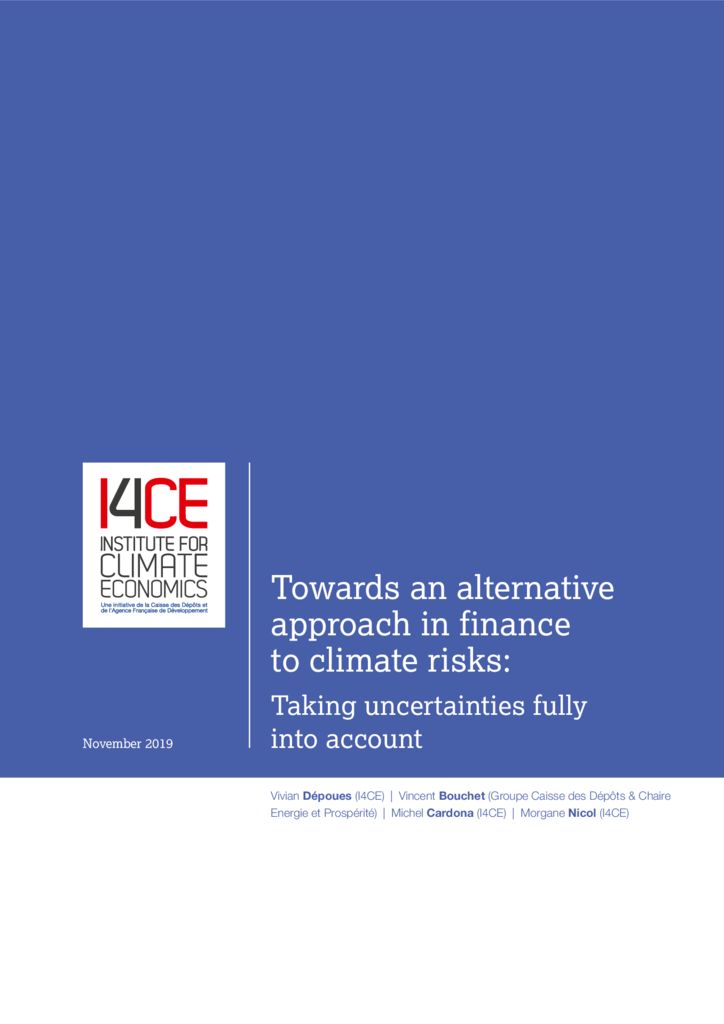Towards an alternative approach in finance to climate risks: taking uncertainties fully into account
It is no easy task to take climate risks – transition risks and physical risks – into account in financial management practices. As this note shows from the example of banking activities, the intrinsic characteristics of these risks – which are long-term and cannot be assigned a probability and for which there are no historical data – are often difficult to reconcile with standard processes based on probabilities established from the past. But uncertainty cannot be a pretext for inaction. The framework of decision-making theory in an uncertain world provides alternative approaches and tools for making decisions despite uncertainties. Although these approaches have been developed in contexts that differ from financial activities, we defend the idea that what underpins them – and in particular the importance given to the criteria of adaptability and robustness of management choices – could be used by financial players. We suggest avenues for discussion in this regard concerning both banking strategy and regulation.
In the first part of this note, we give an overview of the transition risks and the physical climate risks and the three main sources of uncertainty associated with them. We then look at the standard risk management processes that banks use before showing why it is particularly difficult to factor in climate risks. We then review several decision-support tools used in other sectors. Lastly, in the conclusion, we suggest ways to adapt these tools to the finance sector.
This document is intended to serve as a basis for exchange between banking sector risk management practitioners and the regulator, as well as operatives and researchers who have already applied exploratory approaches in other areas. We believe it is crucial to discuss the conditions that must be met to make such developments possible in order to improve the consideration of climate risks in the financing of the economy. Although this work is exploratory, it also opens up avenues for case studies to be conducted.



